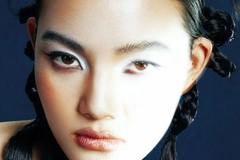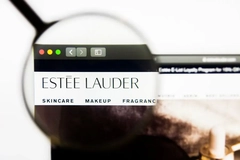Beauty sector hunts for legal loopholes as US tariffs take effect

The Trump administration has imposed 15% tariffs on imports, including some cosmetics, from the EU, South Korea, and other key trade partners. The so-called “Liberation Day” trade agenda is sending shockwaves through the global beauty industry. Some risk mitigation strategies include stockpiling inventory, reassessing manufacturing locations, or exploring customs workarounds to soften the financial blow.
While some countries have moved to secure bilateral deals to cap their rates, others face even steeper penalties. In response, global beauty giants like L’Oréal are adjusting operations while consumers, particularly in the US, brace for rising prices and supply disruptions.
The Washington administration announced sweeping tariffs on imported goods on April 2 this year, calling it “Liberation Day.” The move threatened a baseline 10% tariff increase for all US trading partners, with higher rates for some countries.

However, a May 28 ruling from the US Court of International Trade vacated the Trump administration’s tariff order, declaring it unlawful and issuing a permanent injunction. One day later, the US Court of Appeals for the Federal Circuit granted a stay of that injunction, allowing the tariffs to remain in effect while the case is under appeal. The White House argues that the tariffs are lawful under the president’s emergency trade powers.
Trump’s self‑imposed negotiation deadline for trade deals was August 1.
South Korea secures cap
At the end of last month, South Korea finalized a trade agreement with the US, becoming the seventh country to secure a bilateral tariff deal under President Donald Trump’s initiative.
South Korea joins the UK, Japan, the EU, the Philippines, Vietnam, and Indonesia in securing individualized agreements, avoiding even steeper blanket rates.
The South Korean government agreed to a 15% customs duty on most goods exported to the US, including vast cosmetics shipments, down from the 25% initially threatened by Washington.
South Korea recently became the second largest exporter of cosmetics, surpassing the US for the first time, according to the Korea International Trade Association. Its exports totalled US$3.61 billion between January and April 2025.
In a Facebook statement, President Lee Jae Myung says, “Through this deal, the government has eliminated uncertainty surrounding export conditions and ensured that US tariffs on our exports are either lower than or equal to those imposed on our major trade competitors.”
The nation’s response was mixed. Six of South Korea’s leading business associations, including the Korea Chamber of Commerce, praised the deal as “a critical milestone” that would help stabilize trade conditions.
However, civic groups staged protests outside the US Embassy in Seoul, waving placards reading “No Trump! No King!” and accusing the US of overreach.
Park Sung-hoon, head of the Korean Apple Growers Association, decried what he called Trump’s “madman strategy,” a phrase picked up by local press to describe the unpredictability of his trade tactics.
.jpg) South Korea struck a last-minute deal to cap US tariffs.South Korea’s move follows a year in which the US ran a US$66 billion trade deficit with the country.
South Korea struck a last-minute deal to cap US tariffs.South Korea’s move follows a year in which the US ran a US$66 billion trade deficit with the country.
Cosmetics are a major part of that imbalance: According to industry sources cited by the BBC, K-beauty exports to the US totaled an estimated US$1.7 billion in 2024, up over 50% year over year.
K-beauty hits US mass retailers and scales domestic production as tariff clock ticks
President Trump’s administration uses such trade deficits to justify country-specific tariff hikes.
On July 31, just hours before tariffs were scheduled to take effect, the White House released a new tariff schedule slapping 25% rates on Indian goods, 35% on Canadian exports, and 50% on Brazilian products.
These countries were targeted for failing to negotiate individual agreements in time and for running trade surpluses with the US.
Mitigating impact
European beauty exporters also face a 15% tariff cap, agreed jointly by Trump and EU Commission President Ursula von der Leyen. The figure represents a sharp pivot from previously zero-duty trade on products like cosmetics.
“It’s not good news,” L’Oréal CEO Nicolas Hieronimus told Agence France-Presse during the company’s July 30 half-year results presentation.
“We’re going from 0% to 15%, so of course we’re not pleased.”
He added that while the impact is “manageable” for now, the broader implications remain uncertain.
To soften the blow, L’Oréal has stockpiled inventory, particularly European-made luxury fragrances, and is considering slight price increases.
“We have 36 factories and more than 150 distribution centers around the world,” Hieronimus told investors. “That gives us significant flexibility as most of the units we sell are manufactured where we sell them.”
L’Oréal CFO Christophe Babul elaborated that the company expects the impact to be under 40 basis points for 2025.
“We’ve already built stock there to mitigate the second half. But now we’re looking at operational changes in specific categories, like perfume, for the long term,” Babul said.
The uncertain economic landscape is driving the company to explore risk management strategies for 2026. “We are waiting for the dust to settle, and only then will we decide if we need to move production or make further structural changes,” added Hieronimus.
Earlier this year, L’Oréal, Beiersdorf, Givaudan, and IFF formed the Value of Beauty Alliance, warning the EU against retaliatory tariffs on the US. Executives lobbied in Brussels in March to keep beauty off the EU’s counter-tariff list, arguing that such measures would penalize European companies far more than their American counterparts.
As the industry’s risk management strategies ramp up, escape clauses such as the “First Sale” rule have emerged.
.jpg) L’Oréal is stockpiling products to cushion the tariff impact.Looking for loopholes
L’Oréal is stockpiling products to cushion the tariff impact.Looking for loopholes
The “First Sale” rule is a legal workaround that has existed for decades but is now gaining renewed attention. It allows import duties to be calculated based on a product’s initial factory price rather than the final retail value in the US, which is often significantly higher.
A growing list of beauty companies, including L’Oréal, Moncler, and Ferragamo, are reportedly exploring the rule’s fine print.
If applied, for example, a serum that wholesales for US$20 but retails for US$60 could be taxed at the lower US$20 price, but only if there is a transparent, documented chain of multiple arm’s-length transactions between unrelated entities.
However, the strategy is compliance-heavy and expensive. “Only fancy people can truly afford it — both the legal fees and the risk of audit that come with it,” warned US trade lawyer Michael T. Cone.
Improper use can also trigger penalties and retroactive duties from US Customs and Border Protection.
Members of the Big Four accounting firms have weighed in, too. KPMG partner Ruth Guerra states that inquiries into First Sale have tripled in 2025. PwC’s Francesco Pizzo says many companies are restructuring supply chains to make First Sale eligibility feasible, often through US subsidiaries.
Whiplash spurs consumer panic
The Trump administration’s unpredictable approach to tariffs continues to cause cascading ripples through global markets.
In the most recent twist, the White House released updated tariff rules just hours before the August 1 implementation deadline. The rules added new countries and increased rates while upending price forecasts and supply chain models.
Brands like Procter & Gamble and E.L.F. Beauty have already responded by raising prices in the US and abroad.
Some US beauty shoppers have started stockpiling cosmetics, fearing price increases or product shortages. The behavior has been particularly evident on social media, where influencers openly encourage followers to buy in bulk while prices remain stable.
Posts showcasing large hauls of toners, sunscreens, and serums have proliferated under hashtags like #tariffprep.
“Anyone telling you prices will stay flat through the next two years is naive,” Santé Brand founder Cheyenne Ware told the BBC.













